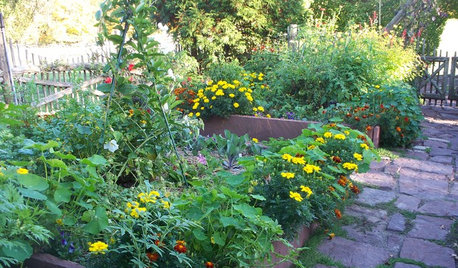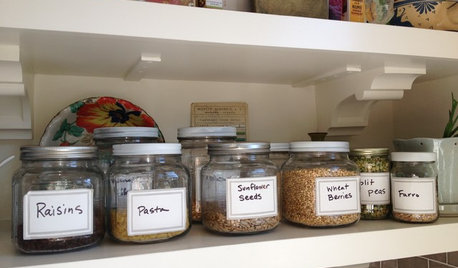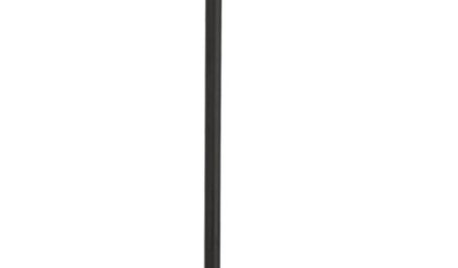Is copper sulfate organic?
annafl
18 years ago
Related Stories

KITCHEN DESIGNKitchen Sinks: Antibacterial Copper Gives Kitchens a Gleam
If you want a classic sink material that rejects bacteria, babies your dishes and develops a patina, copper is for you
Full Story
KITCHEN DESIGNTry a Copper Sink for a Warm Glow in the Kitchen
Bring polish and patina to your kitchen with a sink done in endlessly interesting copper
Full Story
KITCHEN DESIGNSurprise Contender: Copper for Kitchen Countertops
Unexpected and full of character, copper is getting buffed for its growing appearance on the countertop scene
Full Story
DECORATING GUIDESFresh Start: 39 Ways to Organize Your Stuff
Jumpstart your year with great storage ideas from the Houzz community
Full Story
KITCHEN DESIGNThe Hanging Magic of Kitchen Wall Rail Organization
Inspiration and Products to Help Clean Up Countertop Clutter
Full Story
GARDENING GUIDESOrganic Matters: Thwart Insect Pests With Trap Crops
Add a few sacrificial plants to your garden to lure insects away from the harvest
Full Story
KITCHEN STORAGEArtful Organizers: Jars for Pretty Pantry Displays
Ditch the disheveled look of mismatched boxes and bags for colorful or clear pantry jars in an appealing arrangement
Full Story
DECORATING GUIDESOrganized Chic: 15 Stylish Ways With Trays
Keep things neat, give yourself a treat or display unexpected art. These ideas will have you looking at your trays with new eyes
Full Story
PRODUCT PICKSGuest Picks: Accessories for a Stylish, Organized Entryway
Tracked-in mud and lost mittens? Not with these entryway finds, which include kid-friendly options
Full StoryMore Discussions




Termater
annaflOriginal Author
Related Professionals
Folsom Landscape Architects & Landscape Designers · Bell Gardens Landscape Contractors · Federal Way Landscape Contractors · Hannibal Landscape Contractors · Hoover Landscape Contractors · Long Beach Landscape Contractors · Mastic Beach Landscape Contractors · Panama City Beach Landscape Contractors · Seven Hills Landscape Contractors · West Palm Beach Landscape Contractors · Four Corners Landscape Contractors · Aberdeen Decks, Patios & Outdoor Enclosures · Lebanon Decks, Patios & Outdoor Enclosures · Woodland Hills Decks, Patios & Outdoor Enclosures · Immokalee Stone, Pavers & Concretesqueeze
Termater
zucchini
dchall_san_antonio